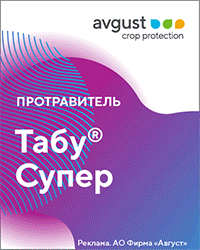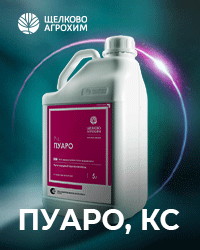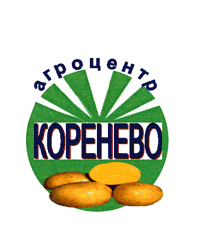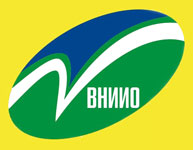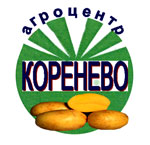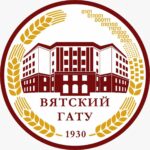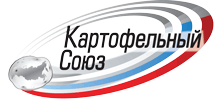UDC 635.21: 631.526.32: 631.527
https://doi.org/10.25630/PAV.2025.66.98.004
Mityushkin A.V., Zhuravlev A.A., Simakov E.A., Gaizatulin A.S., Mityushkin Al-r.V., Semenov V.A.
One of the innovative solutions for the development of the potato industry is the creation of varieties suitable for processing into various potato products under conditions of prolonged cold storage and not accumulating reducing sugars. The aim of the work is to search for and select initial donor cultivars that do not require reconditioning for inclusion in various types of crossing and identification in hybrid offspring of genotypes suitable for processing after cold storage. In 2021-2024, over 50 varieties and hybrids of domestic and foreign breeding were evaluated for their suitability for processing into crisp potatoes by coloring the slices after 3 and 5 months of storage at a temperature of 3–5 °С in a climate-controlled storage and 8–10 °С in a refrigerated the camera. The selected 10 and 21 cultivars with the color of crispy slices at the level of 8-9 and 6-7 points, respectively, after 3 months, 6 and 12 cultivars and hybrids of similar fitness classes after 5 months cold storage were used for subsequent involvement in various types of crossing and obtaining hybrid populations, taking into account their level of suitability and fertility in optimal conditions of spring and summer greenhouses. To identify recyclable genotypes that are neutral to cold storage and determine the effectiveness of the studied types of crossing in field nurseries, hybrids of the first tuberous generation of 25 populations with different levels of manifestation of a complex of economically useful traits were evaluated. It has been established that for the successful implementation of this direction of potato variety breeding, it is necessary to crossbreed parents with a high degree of manifestation of this trait after long-term storage at a temperature of 3–5 °С.
Key words: potatoes, breeding, suitability for processing, cold storage, reconditioning, quality of crispy slices
Mityushkin A.V., Cand. Sci (Agr.), leading research fellow, head of the laboratory for selection of varieties for processing
Zhuravlev A.A., Cand. Sci (Agr.), senior research fellow experimental gene pool department
Simakov E.A. (corresponding author), DSci, professor, chief research fellow, head of experimental gene pool department. E-mail: vniikh@mail.ru
Mityushkin Al-r V., Cand. Sci (Agr.), senior research fellow, experimental gene pool department
Gaizatullin A.S., Cand. Sci (Agr.), research fellow, experimental gene pool department
Semenov V.A., research fellow laboratory for selection of varieties for processing FSBSI Federal research centre for potato after A.G. Lorkh
- Anisimov B.V., Zhevora S.V., Oves E.V. Potato growing in Russia: realities, forecasts, development opportunities. Potato system. 2018. No3. Pp. 10–14. (In Russ.).
- Zhevora S.V. Development of potato breeding and seed production in the Russia. Potato and vegetables. 2025. No1. Pp. 38–42. https://doi.org/10.25630/PAV.2025.41.86.005 (In Russ.).
- Jong D.H. Impact of the potato on society. Am. J. Potato Res. 2016. Vol. 93. Pp. 415–429. Strokov S. Overview of international markets of potatoes and their processed products. Potato system. 2024. No4. Pp. 36–41 (In Russ.).
- Improving the efficiency of potato breeding for processing and production of potato products. A.V. Mityushkin, G.V. Grigoriev, A.A. Zhuravlev, A.A. Sharandin, E.A. Simakov. In the coll. of papers of scientific and practical conference «Potato – 2010». Cheboksary. «Agro-innovations». 2010. Pp. 45–48 (In Russ.).
- Nezakonova L.V., Pingol A.P. The use of raw material suitable for industrial processing for crispy potatoes without recondication in order to optimize the breeding process // In the coll. of papers of scientific and practical conference «Potato – 2012». Cheboksary. «Agro-innovations». 2012. Pp. 40–43 (In Russ.).
- Degovtsov V.E. Assessment of the suitability of new varieties and hybrids for processing into French fries. Potato and vegetables. 2024. No5. Pp. 22-24. https://doi.org/10.25630/PAV.2024.10.50.005 (In Russ.).
- Levels of reducing sugars in eight Kenyan potato cultivars as influenced by stage of maturity and storage conditions. G.O. Abong, M.W. Okoth, E.G. Karuri, J.N. Kabiraand, F.M. Mathooko. J. Anim. Plant. 2012. Vol. 2. Pp. 76–84.
- Potential for improvement by selection for reducing sugar content cold storage for three potato population A.D.S. Pereira, G. Tai, R.Y. Yada, R.Y. Coffin, V.S. Machado. Theor. Appl. Genet. 2004. Vol. 88(6–7). Pp. 678–689.
- Sowokins J.R. Biochemical and molecular control of cold-induced sweeten-ing in potatoes. Am. J. Potato. Res. 2011. Vol. 78. Pp. 221–236.
- Developing cold-chipping potato varieties by silencing the vacuolar invertase gene. L. Wu, P.B. Bhaskar, R. Zhang, P.C. Bethke, J. Jiang. Grop.Sci. Vol. 51. May. 2011. Pp. 981–990.
- Simakov E.A., Anisimov B.V., Zhevora S.V. [et al.]. Varietal potato resources for cultivation in the regions of Russia. Moscow. Achievements of science and technology of the Agroindustrial complex Ltd. 2018. 172 p.
PDF(Rus)
For citing: Breeding of potato varieties for processing into finished products during long-term storage. A.V. Mityushkin, A.A. Zhuravlev, E.A. Simakov, A.S. Gaizatulin, Al-r.V. Mityushkin, V.A. Semenov. Potato and vegetables. 2025. No2. Pp. 50-55. https://doi.org/10.25630/PAV.2025.66.98.004 (In Russ.).

